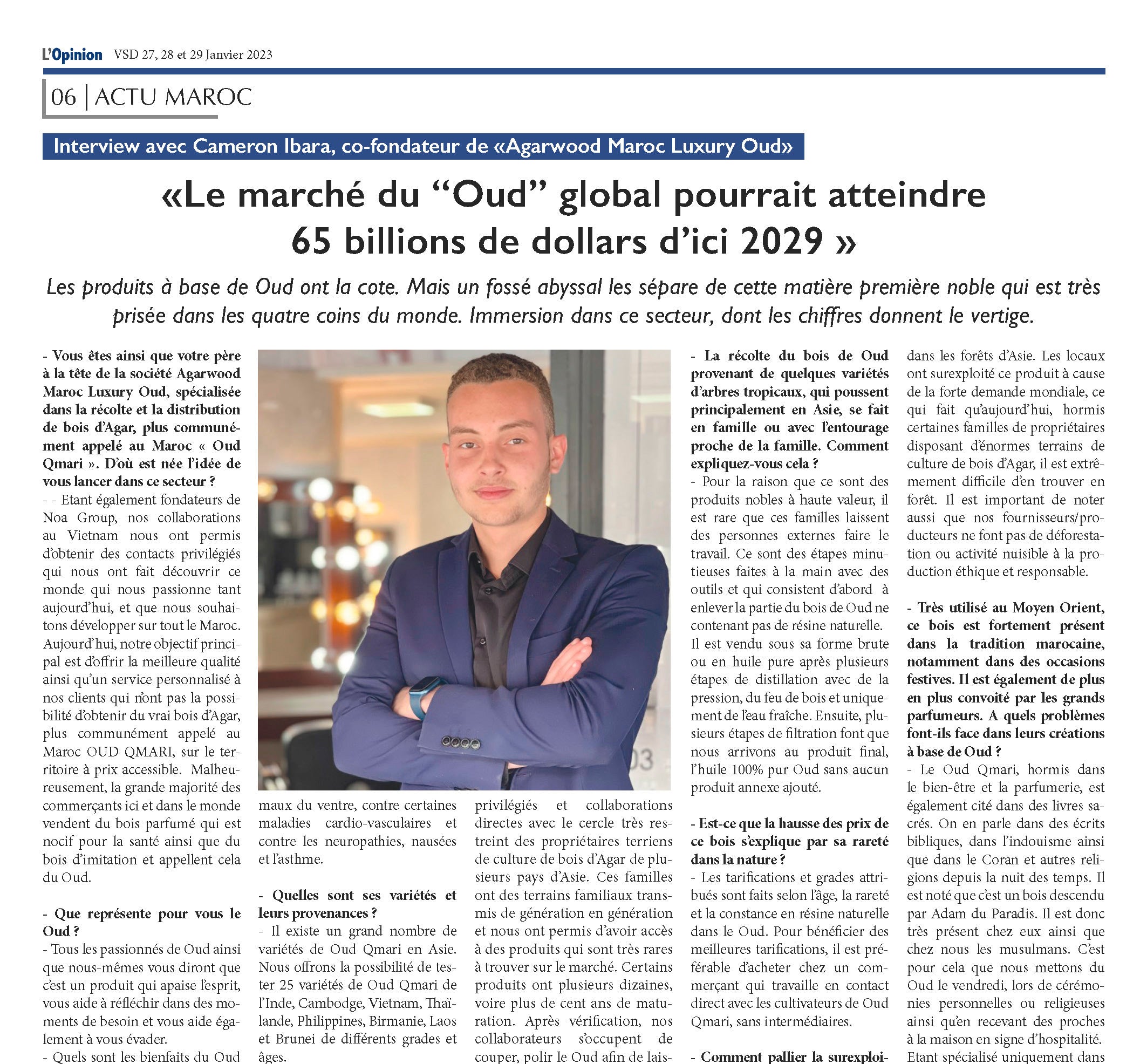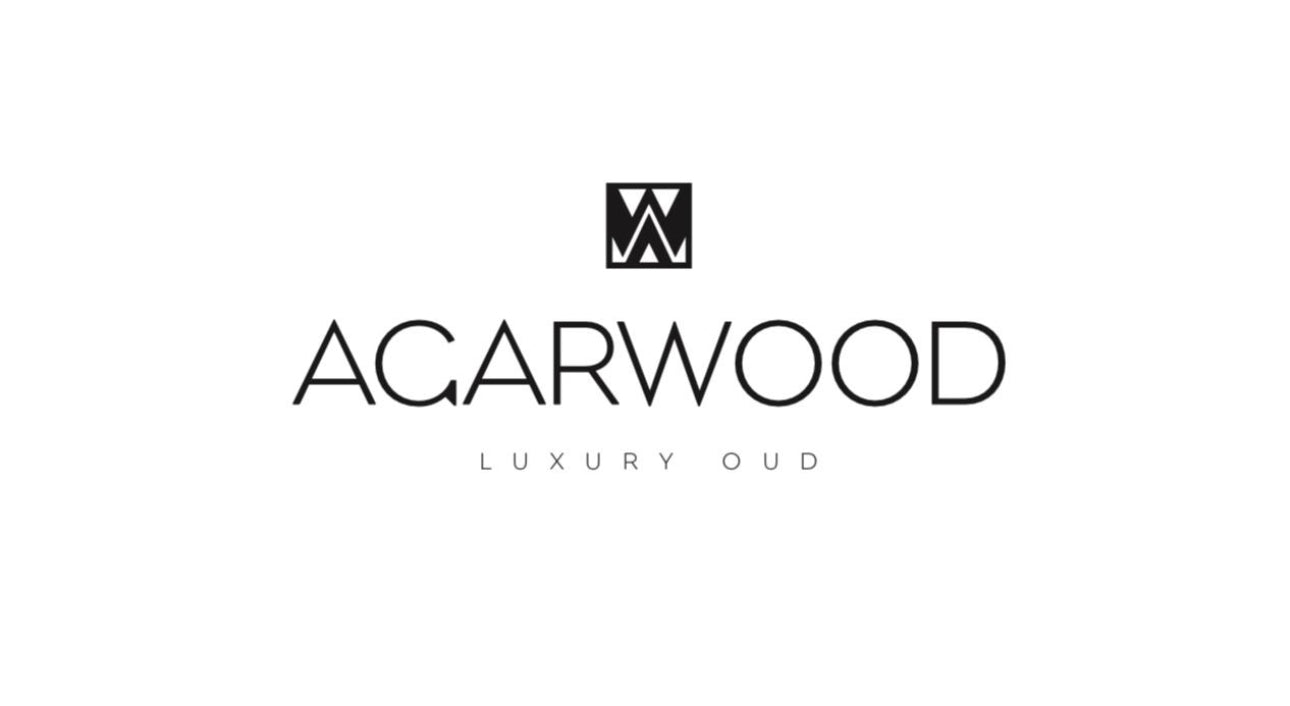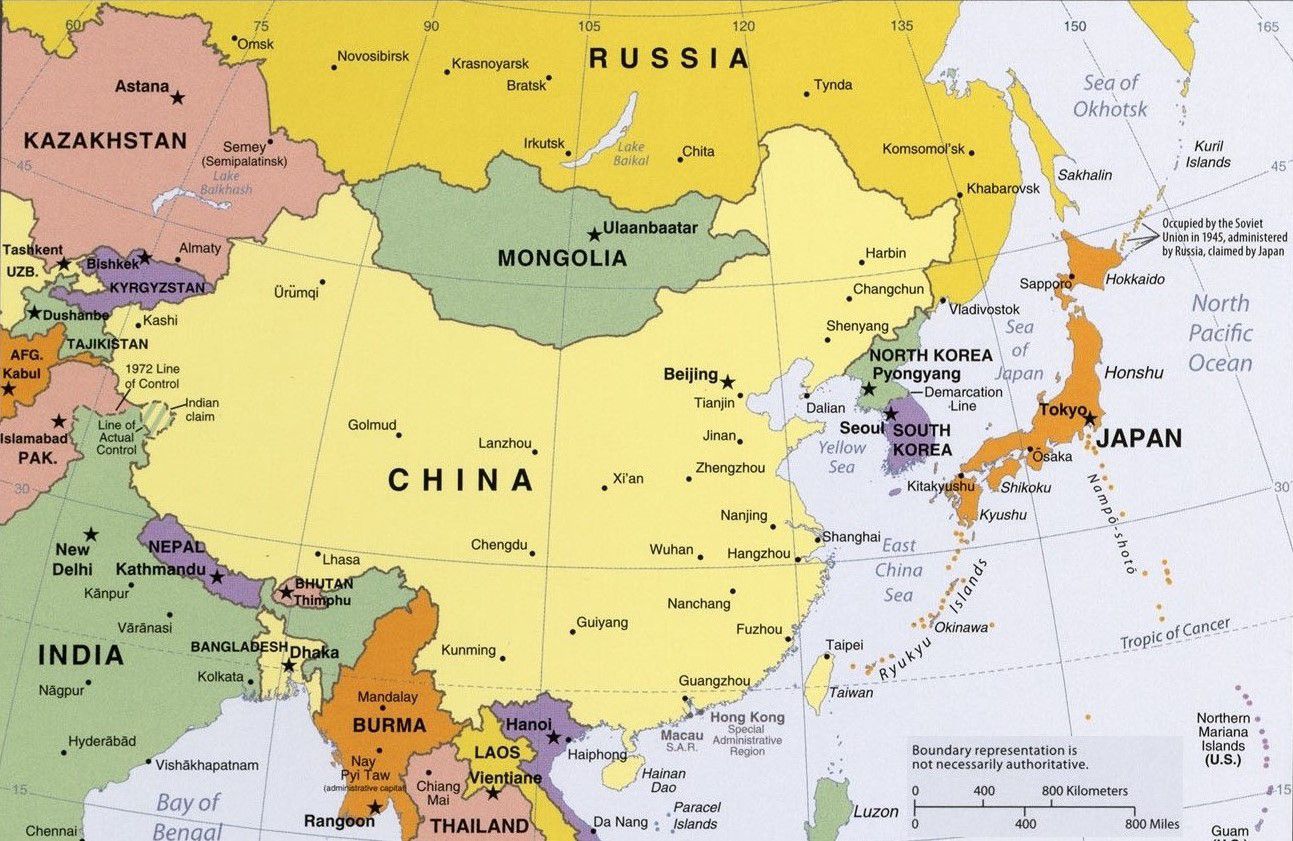Article: Interview with Cameron Ibara, co-founder of “Agarwood Maroc Luxury Oud”

Interview with Cameron Ibara, co-founder of “Agarwood Maroc Luxury Oud”
“The global “Oud” market could reach $65 trillion by 2029”
Oud-based products are popular. But an abysmal gap separates them from this noble raw material which is highly prized in the four corners of the world. Immersion in this sector, whose figures are dizzying.
- You and your father are at the head of the company Agarwood Maroc Luxury Oud, specializing in the harvesting and distribution of Agarwood, more commonly known in Morocco as “Oud Qmari”. Where did the idea of launching into this sector come from?
- Being also founders of Noa Group, our collaborations in Vietnam allowed us to obtain privileged contacts which introduced us to this world which fascinates us so much today, and which we wish to develop throughout Morocco. Today, our main objective is to offer the best quality as well as personalized service to our customers who do not have the possibility of obtaining real Agarwood, more commonly called in Morocco OUD QMARI, on the territory at an affordable price. Unfortunately, the vast majority of traders here and around the world sell scented wood which is harmful to health as well as imitation wood and call it Oud.
- What does Oud represent for you? -
All Oud enthusiasts as well as ourselves will tell you that it is a product that calms the mind, helps you think in times of need and also helps you escape.
- What are the benefits of Oud? How much of a cure is this?
- Oud wood has enormous virtues. It relaxes, soothes, helps with meditation, helps against stomach aches, against certain cardiovascular diseases and against neuropathies, nausea and asthma.
- What are its varieties and their origins?
- There are a large number of varieties of Oud Qmari in Asia. We offer the possibility to test 25 varieties of Oud Qmari from India, Cambodia, Vietnam, Thailand, Philippines, Burma, Laos and Brunei of different grades and ages.
- How do you harvest wood?
- We have forged privileged links and direct collaborations with the very restricted circle of landowners cultivating Agarwood in several Asian countries. These families have family land passed down from generation to generation and have allowed us to have access to products that are very rare to find on the market. Some products have matured for several dozen or even more than a hundred years. After verification, our collaborators take care of cutting and polishing the Oud in order to leave only those containing the natural resin as well as the distillation of our 100% pure Oud oils.
- Harvesting Oud wood from a few varieties of tropical trees, which grow mainly in Asia, is done within the family or with close family circle. How do you explain that ?
- For the reason that these are noble products with high value, it is rare that these families let external people do the work. These are careful steps done by hand with tools and which first consist of removing the part of the Oud wood that does not contain natural resin. It is sold in its raw form or as pure oil after several stages of distillation with pressure, wood fire and only fresh water. Then, several stages of filtration ensure that we arrive at the final product, 100% pure Oud oil without any added ancillary products.
- Is the increase in prices of this wood explained by its rarity in nature?
- Pricing and grades assigned are based on age, rarity and consistency of natural resin in Oud. To benefit from the best prices, it is preferable to buy from a merchant who works in direct contact with Oud Qmari growers, without intermediaries.
- How to compensate for the overexploitation of this botanical species? Is local production of this botanical species possible?
- Oud Qmari can be found in the forests of Asia. The locals have overexploited this product because of the strong global demand, which means that today, apart from certain families of owners with enormous land for growing Agarwood, it is extremely difficult to find it in forest. It is also important to note that our suppliers/producers do not engage in deforestation or activities harmful to ethical and responsible production.
- Widely used in the Middle East, this wood is strongly present in Moroccan tradition, particularly on festive occasions. It is also increasingly coveted by major perfumers. What problems do they face in their Oud-based creations?
- Oud Qmari, apart from in well-being and perfumery, is also cited in sacred books. It has been spoken of in biblical writings, in Hinduism as well as in the Koran and other religions since the dawn of time. It is noted that it is a wood brought down by Adam from Paradise. It is therefore very present among them as well as among us Muslims. This is why we wear Oud on Fridays, during personal or religious ceremonies as well as when receiving loved ones at home as a sign of hospitality. As I specialize only in 100% pure Oud products, I cannot answer this question. On the other hand, what I can say is that two worlds separate synthetic perfumes based on Oud and 100% pure Oud oils. Many of our customers, who are used to branded Oud-based perfumes, are discovering the strong scents of Oud oils with us for the first time. And very often, when you get used to 100% pure Oud perfumes, it is difficult to return to synthetic/alcoholic perfumes.
- Is global demand for Agarwood increasing? What about the Oud-based perfume market?
- Agarwood or Oud Qmari has been on the rise since the dawn of time. The global oud market is estimated at $32 trillion and some believe it could reach $65 trillion by 2029.
Collected by Safaa KSAANI

